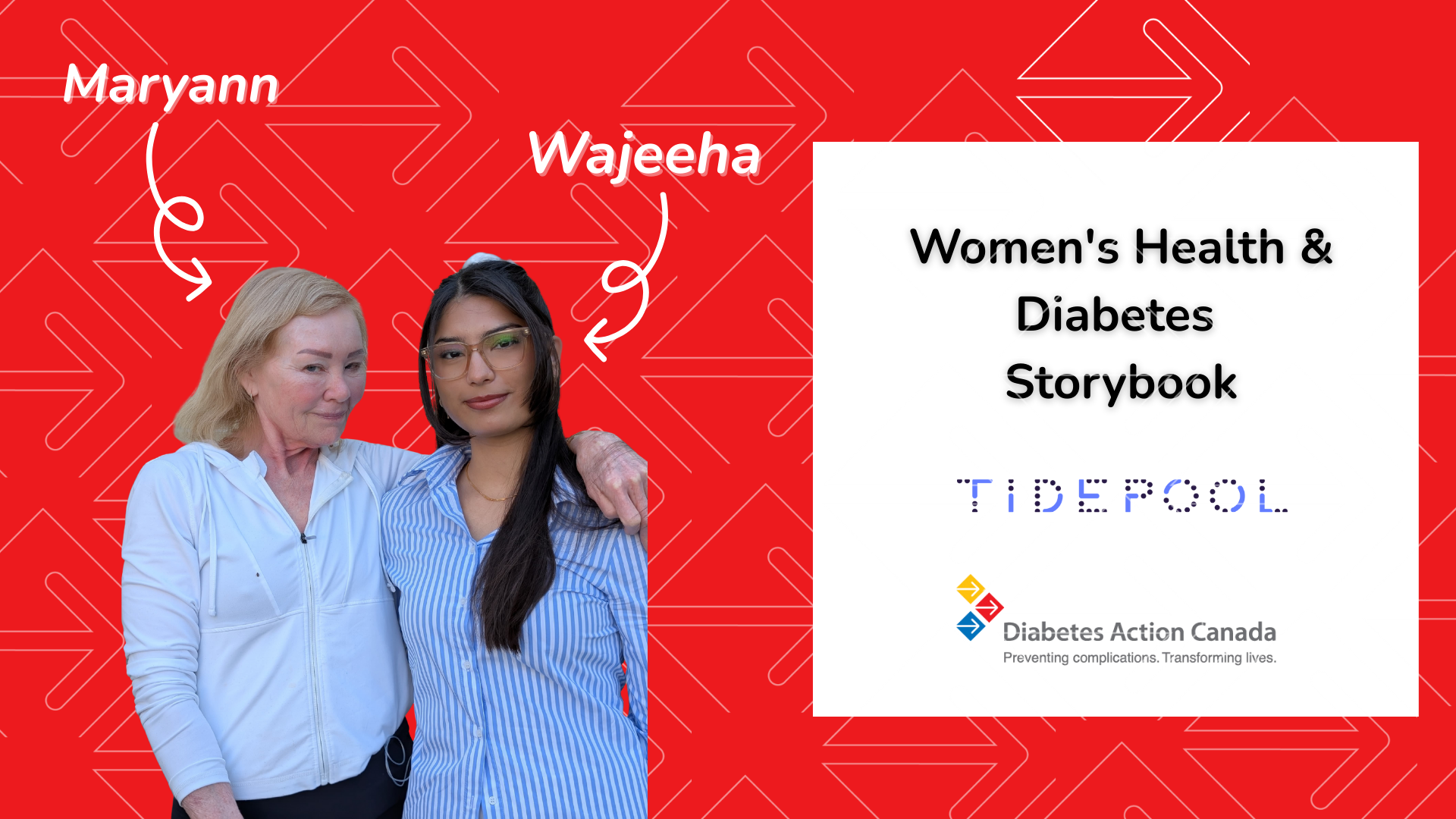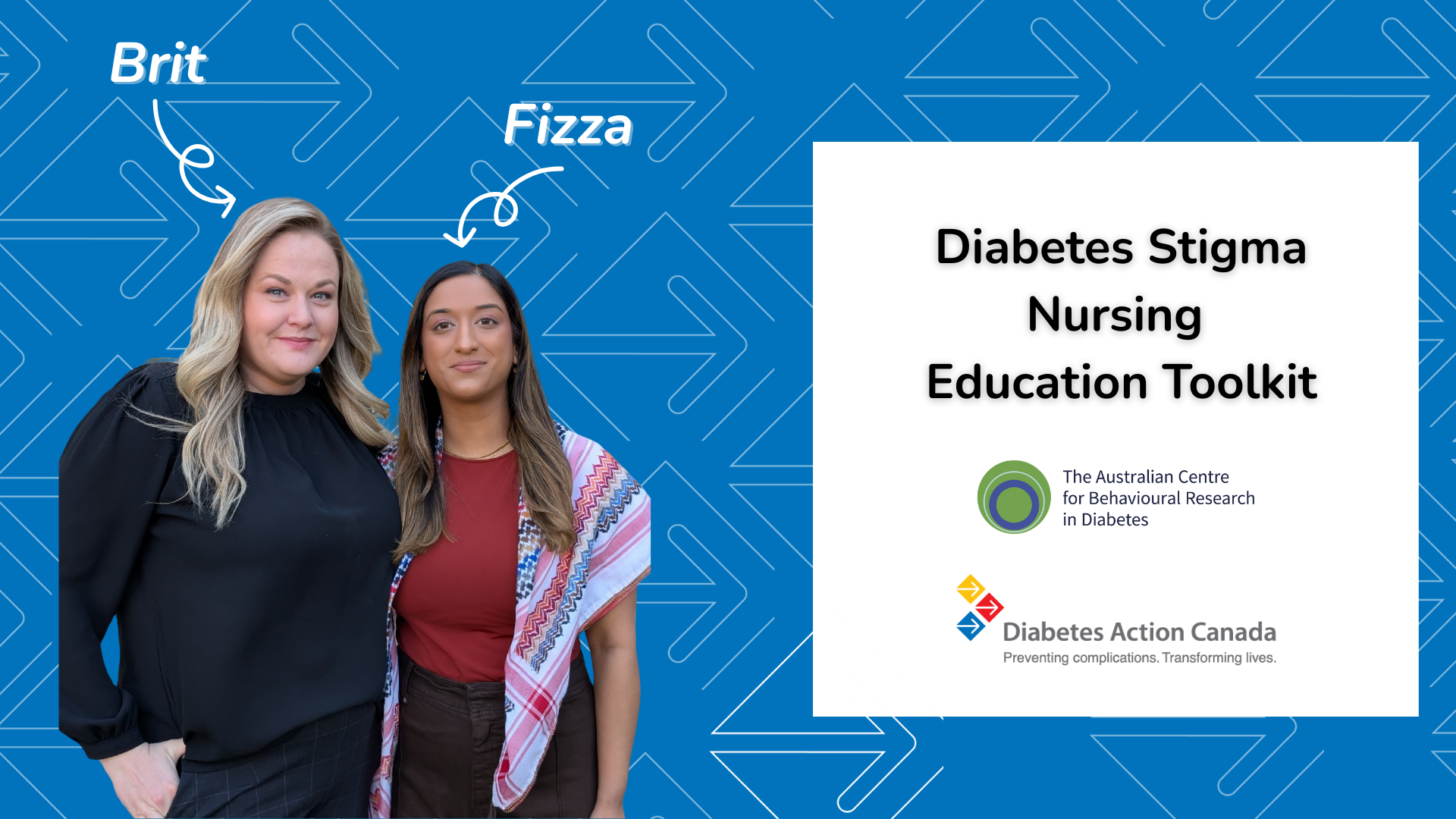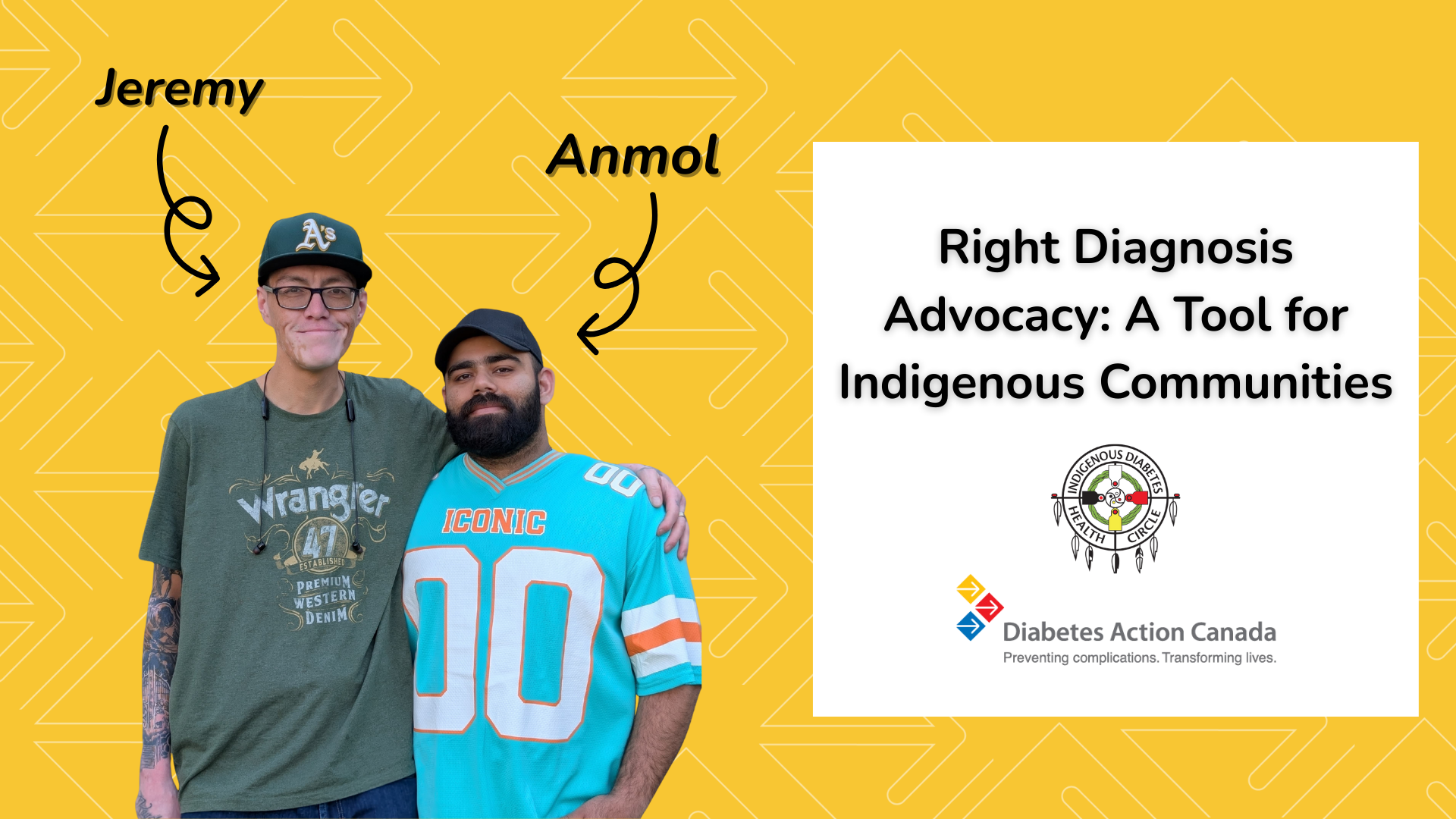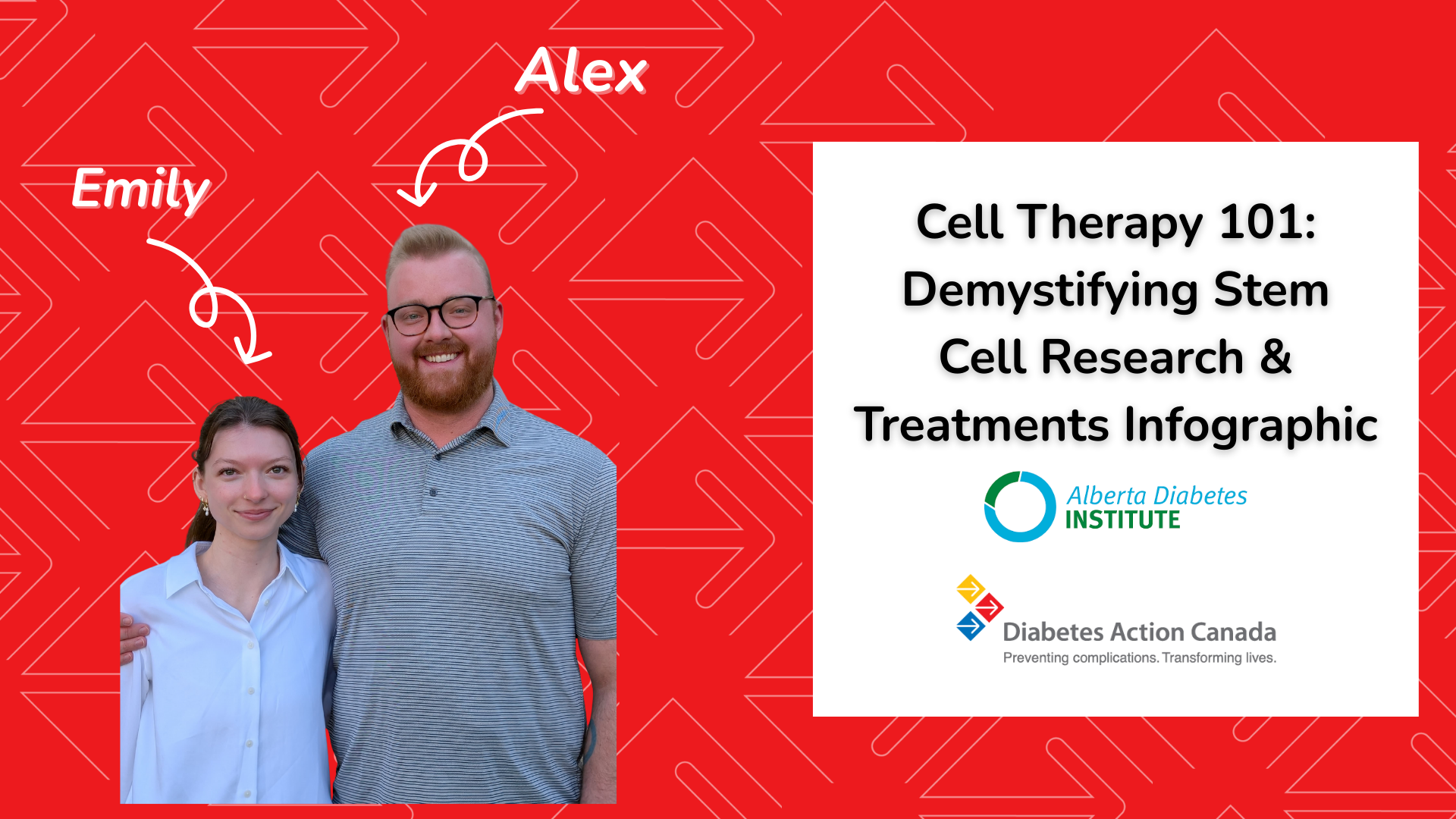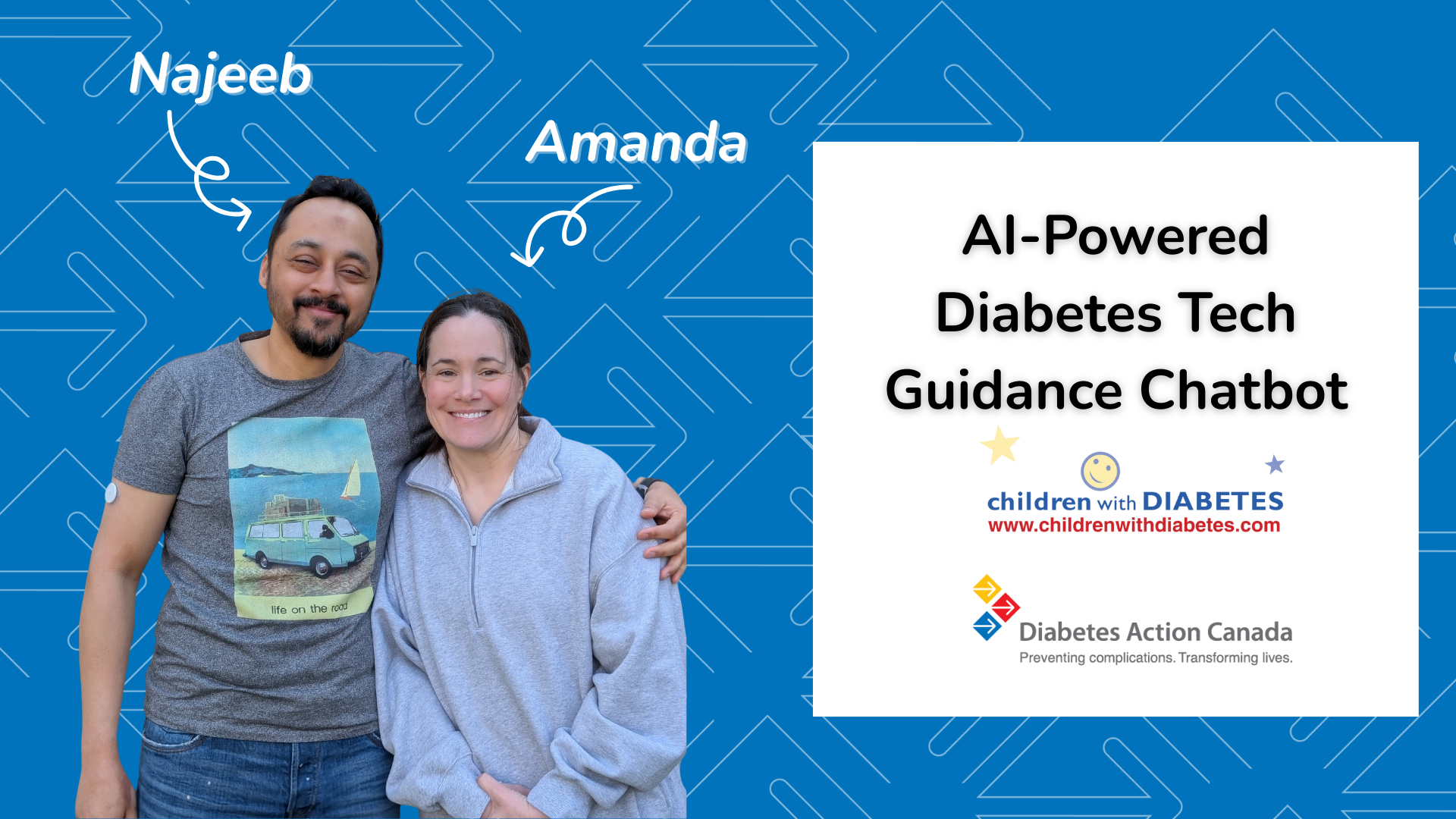Research to Action Fellowship
Transforming Research Into Meaningful Change

-
Empowering Patient Partners to Transform Diabetes Care
The Research to Action Fellowship is a dynamic, nine‐month program that empowers Patient Partners to drive meaningful change in diabetes care.
Working side‐by‐side with leading organizations, fellows transform research findings into tangible, community‐driven initiatives—ensuring that diabetes care becomes more accessible, equitable, and reflective of real-world experiences.
Fellows work in pairs, teaming up with leading organizations to take research off the page and into their communities.
-
The Research to Action Fellowship is a nine‐month, $3,000 paid program that:
- Engages patient partners to turn research into action.
- Supports fellows in co‑creating impactful projects with partner organizations.
- Provides mentorship and training from DAC’s team of patient engagement, knowledge mobilization, and communications specialists.
- Includes key events such as the DAC Workshop and the Diabetes Canada Conference.
- Offers unique leadership opportunities, allowing fellows to lead a co‑design session, be featured on dedicated podcast episodes, and contribute thought leadership pieces through published blogs and articles.
-
Co‑Designing Impactful Projects with Community Voices
Every resource in our Resource Library is developed through a truly collaborative process. In addition to working closely with partner organizations, our Fellows hosted four dedicated co‑design sessions that engaged over 60 community members. These sessions gathered vital feedback on design, content, and cultural relevance, ensuring each project meets community needs and is as effective as it is innovative. All participants in these sessions were compensated for their expertise.We would like to express our heartfelt gratitude to the following community members who chose to be credited for their outstanding input:
Anna Whaley, Christina Marie Mulchandani, Dana Greenberg, Destaalem Araya Tesfay, Pascual Delgado, Rina Sen Gupta, Sally Nystrom, Shayla Hele, Theresa Okafor, Virtue Bajurny, Wendy Reaser, and Zoe Hilton.Note: These names represent only some of the many valuable contributors whose anonymous feedback also helped shape these resources.
-
Insights into the Co‑Design participants on their experience:
“The session was clear, informative, and respectful of diverse perspectives—it truly felt like a community effort.”
“I appreciated how our input directly shaped the final designs, making the projects both practical and engaging.”
“The co‑design process was empowering, with a perfect blend of creative freedom and valuable guidance.”
“Developed for community, by community—this experience reinforced the power of collaborative innovation.”
-
We use terms throughout this application that might be new to some applicants. Below are definitions to help you understand the language we use in the Research to Action Fellowship:
- Patient Partner: An individual with lived or loved experience of a health condition who collaborates with researchers, organizations, and healthcare professionals to shape research, policy, and healthcare improvements.
- Knowledge Mobilization (KM): The process of sharing research findings with the people and communities they impact. This includes translating research into practical tools, policies, or resources that improve healthcare.
- Knowledge Product: A tangible outcome of knowledge mobilization. This can be a video, infographic, comic, blog series, self-advocacy tool, educational workshop, or any creative way to make research accessible and actionable.
- Co-Design: A collaborative approach where people with lived, learned, loved, or laboured experience work together to shape research and create solutions that reflect diverse perspectives.
- Lived, Loved, Learned, Laboured (4L) Experiences: A model that acknowledges the different ways people engage with healthcare:
- Lived: Personal experience of a health condition.
- Loved: Experience caring for a family member or friend with a health condition.
- Learned: Academic or professional training related to healthcare.
- Laboured: Working in the healthcare system, advocacy, or policy.
Resource Library
Click the thumbnail’s to download the resources today.
Rosan Wesley & Ryan Hooey created a visually engaging set of flashcards designed to support self‑advocacy and informed diabetes care decisions in Indigenous communities.
Al Martin & Matt Larsen designed a creative series of comics that illustrate real patient experiences and challenges in navigating healthcare systems, sparking conversation and empathy.
Cindy Lufuluabo & Senaya Karunarathne produced engaging, narrative‑driven vignettes that deliver vital diabetes education using culturally tailored language and imagery, designed specifically for Black and South Asian communities.
Jeremy Storring & Natalie Mangialardi designed clear, bilingual infographics that explain the benefits of continuous glucose monitoring (CGM) and offer actionable strategies to support mental health in diabetes management.
Wesley, R., & Hooey, R. (2024). Self advocacy flashcards for Indigenous communities. National Indigenous Diabetes Association in collaboration with Diabetes Action Canada. Retrieved Month Day, Year, from https://diabetesaction.ca/research-to-action-fellowship/
Martin, A., & Larsen, M. (2024). Comics on Patient Healthcare Interactions. Obesity Canada in collaboration with Diabetes Action Canada. Retrieved Month Day, Year, from https://diabetesaction.ca/research-to-action-fellowship/
Senaya, S., & Lufuluabo, C. (2024). Black and South Asian Diabetes Vignettes. Access Alliance in collaboration with Diabetes Action Canada. Retrieved Month Day, Year, from https://diabetesaction.ca/research-to-action-fellowship/
Mangialardi, N., & Storring, J. (2024). Time in Range Wellbeing Infographics. diaTribe Time in Range Coalition in collaboration with Diabetes Action Canada. Retrieved Month Day, Year, from https://diabetesaction.ca/research-to-action-fellowship/
2025 Resources
Our fellows are busy preparing their resources to share with you in Spring 2026. To register your interest and receive the resources direct you your inbox complete the form below.
2025
Fellows
Meet our incredible Fellows! Click the thumbnail to learn more about their inspiring journeys and impact.
-
Jeremy Auger
Jeremy is a person living with Type 1 diabetes who brings insight from lived experience and community-based diabetes projects in Calgary. He is motivated to help others avoid the challenges he has faced and is passionate about Indigenous health and education.
-
Najeeb Ashraf
Najeeb is a medical communications expert and the CEO of SciVoc Consulting with over 35 years of lived experience with Type 1 diabetes. He brings a deep commitment to advocacy, health equity, and elevating patient voice in science and research.
-
Fizza Abbas
Fizza is a racial equity advisor and community organizer whose work is grounded in decolonizing healthcare and honouring lived experience. She is passionate about storytelling, trauma-informed practice, and building systems rooted in dignity and collective care.
-
Anmol Budhiraja
Anmol is a mental health and crisis response worker rooted in harm reduction and community advocacy. They are passionate about addressing systemic barriers in healthcare through co-created tools and grassroots storytelling.
-
Alex St. John
Alex is a diabetes researcher and athlete focused on making physical activity safer and more accessible for people with Type 1 diabetes. He translates complex science into plain-language tools to empower the diabetes community.
-
Emily Burke-Hall
Emily is a recent Queen’s University graduate with a background in life sciences and a personal connection to Type 2 diabetes. She is passionate about supporting families and children affected by chronic illness.
-
Brit Hancock
Brit is a Type 1 diabetes advocate and policy strategist who uses storytelling to challenge stigma and improve access. Her lived experience drives her commitment to reshaping public understanding and healthcare systems.
-
Amanda Knight
Amanda is a caregiver and mom who became immersed in Type 1 diabetes advocacy after her son’s diagnosis. She is passionate about supporting other families navigating similar journeys.
-
Maryann Maloney
Maryann is a long-time patient partner with 47 years of lived experience with Type 1 diabetes. She brings a powerful commitment to equity, storytelling, and creating more inclusive health systems
-
Wajeeha Cheema
Wajeeha is a Type 1 diabetes advocate and researcher whose lived experience fuels her work to advance equitable, culturally relevant care. She partners with leading research institutes to amplify patient voices and drive innovation for underrepresented communities.
Partner Organizations
Click the organizations name to learn more about their mission and impact.
-
Tidepool is a nonprofit creating open-source software to help people manage insulin-requiring diabetes.

-
DCB is a Swiss foundation that supports research and innovation to improve diabetes technology.

-
The Australian Centre for Behavioural Research in Diabetes studies the psychological and social impacts of living with diabetes.

-
The Indigenous Diabetes Health Circle promotes diabetes wellness through culturally relevant programs for Indigenous communities.

-
CwD provides education, community, and events for families living with type 1 diabetes

-
Canada’s largest diabetes research institute, translating research into better prevention and care.

Project Themes
Each year, fellows work on research-informed projects to address critical gaps in diabetes care, awareness, and advocacy. Discover the 2025 themes.
-
This project aims to bridge the gap between cutting-edge cell therapy research and the diabetes community. Fellows will co-design with community members to uncover key questions and concerns about this promising but complex field. Using these insights, they will create a clear, accessible resource that explains how cell therapy works and what people can realistically expect. The final product could be a plain-language guide, a webinar series, or a video that makes this information understandable and meaningful for people living with diabetes.
-
This project will help people with diabetes better understand and manage hormonal changes throughout different life stages. Fellows will co-design with community members to uncover gaps in current resources and pinpoint what support is most needed. They will then create an accessible, practical resource that empowers people to adjust their care and advocate for better treatment. The final product could be a digital tool, a guide, a workshop series, or another format that makes this information clear and easy to use.
-
This project will help people with diabetes understand Automated Insulin Delivery (AID) systems and decide if they are right for them. Fellows will co-design with community members to uncover common questions, barriers, and knowledge gaps about AID. They will then create an accessible resource that explains AID options, how they work, and how to get started. The final product could be a guide, video, or step-by-step tool that makes navigating AID systems clearer and less overwhelming.
-
This project aims to help Indigenous people in Canada get accurate diabetes diagnoses and culturally safe care. Indigenous fellows will co-design with community members to uncover the best ways to share information about diabetes types and navigating the healthcare system. They will create a tool that empowers people to ask the right questions and advocate for proper testing and treatment. The final product could be a practical guide, a storytelling resource, or a video series that supports self-advocacy and better health outcomes.
-
This project will tackle the stigma that negatively affects people with diabetes in their daily lives and healthcare experiences. Fellows will co-design with community members to identify the most harmful misconceptions and find effective ways to challenge them. They will create a resource that helps shift narratives, educate others, and support self-advocacy. The final product could be a public campaign, a training tool, or a storytelling project that reduces shame and promotes understanding.
2024
Fellows
Meet our incredible Fellows! Click the thumbnail to learn more about their inspiring journeys and impact.
-
Rosan Wesley
Rosan Wesley is a Cree mental health therapist from Ontario and a 2024 fellow. A type 2 diabetes patient and daughter of a residential school survivor, she uses her lived experience to support Indigenous communities.
-
Ryan Hooey
Ryan Hooey is a passionate type 1 diabetes advocate with over 30 years of experience and diabetic retinopathy. As a patient partner and member of the Keeseekoowenin First Nation, he champions accessible care and equitable resources.
-
Al Martin
Al works as a heavy haul trucker, is a husband and father of two teenagers. He is an advocate and patient partner with Diabetes Action Canada and Obesity Canada.
-
Matt Larsen
Matt is a Masters student in the area of health services research at the University of Calgary. He is also a person with lived experience of homelessness and has type 2 diabetes.
-
Cindy Lufuluabo
Cindy Lufuluabo is currently pursuing a Master’s in Public Health at the University of Montreal, focusing on health equity and improving health outcomes for marginalized communities. As the daughter of Congolese immigrants, Cindy believes that culture is a vital factor in health.
-
Senaya Karunarathne
Senaya Karunarathne is an undergraduate student pursuing her Honours Bachelor of Science at McMaster University in Hamilton, Ontario. She is a passionate advocate with a particular interest in the disproportionate impact of type 2 diabetes on Black and South Asian populations.
-
Natalie Mangialardi
Natalie Mangialardi is a Toronto-based fellow who leverages her experiences with type 1 diabetes and mental illness to support young adults. A Queen’s University graduate and current Master of Social Work student, she advocates for community engagement and health equity.
-
Jeremy Storring
Jeremy Storring is a Saskatoon-based research fellow with 12 years of type 1 diabetes experience. He co-develops supportive resources, contributes to open-source insulin pump technology, and advocates for improved diabetes care.
Partner Organizations
Click the organizations name to learn more about their mission and impact.
-
NIDA supports Indigenous communities across Canada in preventing and managing diabetes through culturally relevant resources and programs.

-
Obesity Canada is Canada’s leading organization for obesity research, education, and advocacy, working to improve the health of those living with obesity.

-
Access Alliance provides health and social services for immigrants, refugees, and underserved communities, promoting equitable access to care.

-
This coalition focuses on improving diabetes care by helping people and healthcare providers understand and prioritize “time in range” with continuous glucose monitors (CGMs).









